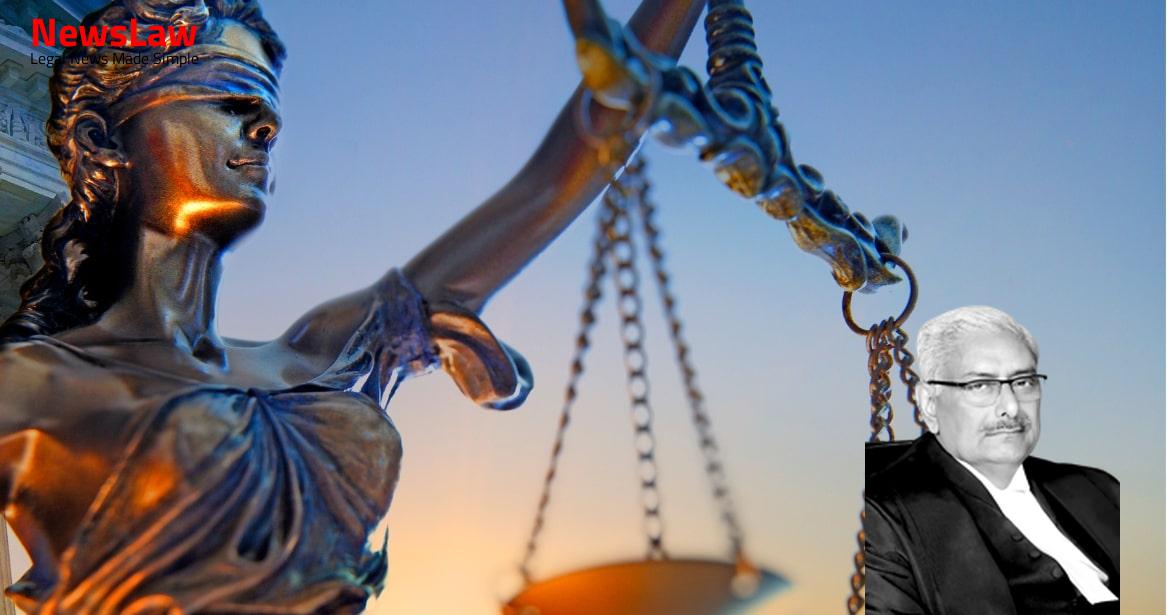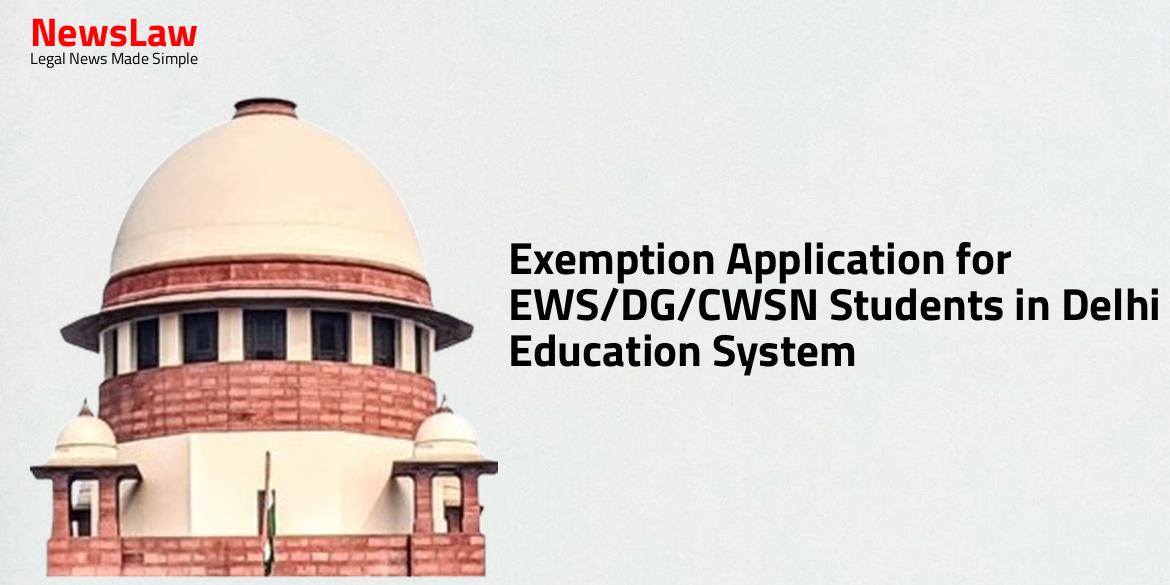Delve into the intricate legal analysis of constitutional provisions governing reservation in scheduled areas. This case focuses on the extent and permissibility of reservation for scheduled tribes, within the framework set by the Constitution. The court’s examination of Article 16, Schedule V, and special provisions for SCs/STs sheds light on the legal complexities at play. Stay tuned to understand the implications of the court’s decision on the reservation limits and its alignment with constitutional principles.
Facts
- Non-tribals who were appointed as teachers in the scheduled areas filed Writ Petition No.5276/1993 in the High Court of Andhra Pradesh at Hyderabad against termination of their services.
- The validity of Government Office Ms. No.3 dated 10.1.2000 providing 100% reservation to the Scheduled Tribe candidates, out of whom 33.1/3% shall be women for the post of teachers in the schools in the scheduled areas in the State of Andhra Pradesh, is under challenge.
- Governor issued G.O.Ms.No.3 providing 100% reservation for Scheduled Tribes in scheduled areas.
- The High Court in minority view held the reservation of 100% to be against Articles 14 and 16 of the Constitution.
- The Governor’s power under Schedule V does not allow making laws contradictory to the Constitution.
- G.O.Ms.No.3 was deemed discriminatory towards other categories of candidates.
- The reservation under Article 16(4) should not exceed 50% according to the High Court’s opinion.
- The majority view supported affirmative action in scheduled areas.
- The Division Bench set aside the Single Bench’s order in a writ appeal related to the reservation.
- The Civil Appeal No. 6437/1998 allowed non-tribal appointees to challenge the reservation.
- A fresh notification was issued in January 2000 enforcing 100% reservation for teacher appointments in scheduled areas.
- The Andhra Pradesh Administrative Tribunal directed recruitment based on statutory rules and not the previous orders by the Social Welfare Department.
- The Supreme Court’s decision in Civil Appeal No. 6437/98 led to modifications in state rules for appointment in Scheduled Areas.
- The Government’s notification directed that only Scheduled Tribe women be appointed in Scheduled Areas against a specific reservation.
- The Andhra Pradesh Administrative Tribunal quashed orders based on G.O.Ms.No.275 due to lack of legal backing.
- The Division Bench of the High Court directed to continue temporary employees as teachers until replaced by qualified local tribals.
- The High Court upheld the validity of G.O.Ms. in a 3-Judge Bench decision.
- The tribunal set aside G.O.Ms. allowing for 100% reservation based on reasonable classification and nexus with the objective.
Also Read: Preservation of Fundamental Rights in Education
Issue
- The issue in the case revolves around the permissibility and extent of reservation for scheduled tribes.
- It questions whether scheduled tribes can be granted reservation under the Constitution, and if so, to what extent.
- The fundamental consideration is whether the conditions of eligibility for reservation in the notification are reasonable and justified.
- To be classified as Backward Classes for reservation purposes under Article 15 or 16, the backwardness of the group must either be officially recognized through a presidential notification or objectively identified by the State as socially and educationally disadvantaged comparable to Scheduled Castes or Scheduled Tribes.
- This case delves into the complexities of determining the eligibility and extent of reservation for scheduled tribes within the constitutional framework.
Also Read: Legal Analysis on Shareholding and Nomination Rights
Arguments
- The power under Clause (1) of Para 5 to extend legislation to scheduled areas allows for amendments.
- Special provisions for SCs/STs include reservations in various institutions.
- Arguments were made that Article 16(4) is declaratory and empowering but not a standalone power source.
- Scheduled areas are established under Article 244 and Schedules V and VI.
- Concerns raised about reservations affecting administrative efficiency and the structure of equal opportunity.
- Issues regarding reservations, merit, and experiential outcomes were debated.
- The uniqueness and historical context of scheduled areas and tribes were emphasized.
- Differences between Article 371D and Para 5 of Schedule V were highlighted.
- Chronic absenteeism in schools in scheduled areas was cited as a concern for which 100% reservation was proposed.
- Arguments related to non-tribals in scheduled areas, and restrictions on land ownership were discussed.
- The scope of judicial review and constitutional provisions were examined in relation to the case.
- The fundamental conflict and alignment between various constitutional provisions were explored.
- Importance of tribal teachers in scheduled areas and the impact on tribal students’ education were emphasized.
- The significance and scope of scheduled areas in Andhra Pradesh were detailed.
- The classification, reservations, and special educational initiatives for Scheduled Tribes were under review.
- The arguments presented for and against the reservations and their impact on merit and education quality were analyzed.
- The respondents argue that the marks obtained in exams/interviews at the entry stage do not reflect the inherent merit of a candidate.
- They refer to the perspective of Douglas, J in DeFunis where scoring well may show promise and potential, especially for candidates from disadvantaged backgrounds.
- Members of backward classes may initially score lower due to disadvantages but can perform equally given time and opportunities.
- Intelligence is not restricted to any particular social class.
- A case regarding reservation of teacher vacancies in Scheduled Areas was discussed, allowing for non-local tribals to fill posts if local tribals are unavailable.
- The non-obstante clause in Schedule V remains significant, with the argument that the basic structure doctrine may impact Article 371-D but not Schedule V.
- Article 14 should not be used to undermine the intent of the non-obstante clause in Schedule V.
- In cases of conflicts between non-obstante clauses, they should be interpreted in harmony as much as possible.
Also Read: Legal Analysis of Change in Law Compensation in Power Purchase Agreements
Analysis
- Article 371D of the Constitution empowers the President to specify tribes or tribal communities to be deemed as scheduled tribes in a particular State or Union territory.
- Article 371D provides special provisions for the States of Andhra Pradesh and Telangana with regard to equitable opportunities in public employment and education.
- The Andhra Pradesh Public Employment Order, 1975, organizes local cadres and regulates direct recruitment, specifying local candidates for specific posts.
- Schedule V allows the Governor to modify or exclude the application of Acts of Parliament or State Legislature in scheduled areas, with exceptions and modifications as necessary.
- Para 5(1) and (2) of Schedule V authorize the Governor to make regulations for the peace and good governance of scheduled areas.
- The Governor has the power to repeal or amend existing laws and make exceptions for effective governance in scheduled areas.
- The reservations for posts in services of various bodies should not exclude others unjustly and should be in line with the constitutional provisions for equal opportunity.
- The government’s action in exceeding the 50% reservation limit set by previous court decisions was unexpected and unconstitutional.
- The attempt to protect the illegal exercise from 1986 by issuing a retrospective G.O.Ms. No.3 of 2000 was deemed unconstitutional.
- Appointments made with over 50% reservation were conditionally saved, but future attempts by the reorganised States of Andhra Pradesh and Telangana to exceed the limit will not be saved.
- Appellants are rightfully concerned about the potential for the State to repeat such illegal actions in the future.
- There was no valid justification for the State Government to implement 100% reservation.
Decision
- The order in C.A. Nos.2305-06/1991 was dismissed as withdrawn on 20.3.1998.
- The respondents-States are directed not to exceed the limits of reservation in future.
- The appeals were allowed, and the appointments made so far are saved with conditions.
- The cost of appeal is quantified at Rupees Five Lakhs to be shared equally by Andhra Pradesh and Telangana States.
Case Title: CHEBROLU LEELA PRASAD RAO Vs. STATE OF A.P. . (2020 INSC 344)
Case Number: C.A. No.-003609-003609 / 2002



